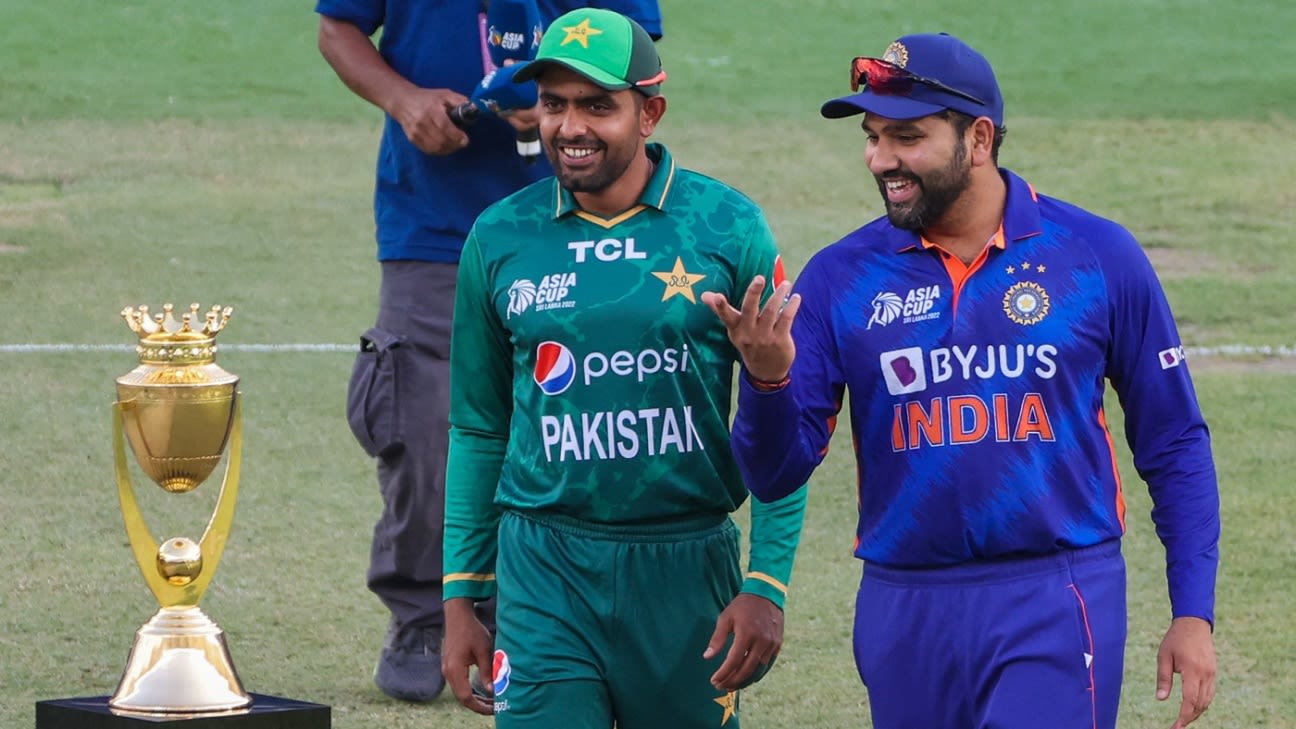[ad_1]
“I would say India start as favourites. This is their strongest team since 2011, this mix of players,” Shastri said. “And a captain who is seasoned, who understands the terrain better than most.
“Having said that, Pakistan have narrowed the gap. Seven-eight years [ago], there was a gap if you looked at the strength of both teams and man to man. But Pakistan have narrowed it down. They are a very good side, so you have to be on top of your game.”
Shastri feels that when it comes to a high-pressure, high-stakes contest like India vs Pakistan, player form is less important than player temperament, which makes the real difference.
“That’s what’s important, keeping calm and treating it as just another game,” he said. “And not overhype it in your mind that makes you think differently. Your game has to be the same as it would be in any other game. But because of that subconscious pressure, it’s the mentally tough guys who normally get it right.
“When you look at the mix of players on either side, they are fabulous. And it will be a spectacle. In an India-Pakistan game, it is about who handles pressure better, who is calmer, whose thought process is clear. Those are the guys who will come through in those big occasions.
“And never go by form before an India-Pakistan game, because the tough-minded, mentally strong guys might not have done much six months back, but come the India-Pakistan game, they will come [to the fore]. They know the importance of that game, they know where it can catapult them if they do well. Their juices will be fired up.”
Shastri: Must convert starts to big scores, like Babar does
Shastri believes that all batters looking to succeed in crunch games need to follow Babar Azam‘s approach. Babar, the Pakistan captain, scored his 19th ODI century in the opening game of the Asia Cup against Nepal, and Shastri feels other batters need to example.
“He [Babar] converts those 30s and 40s starts into hundreds,” Shastri pointed out. “And it is so important. We keep saying to go out there and face a number of balls, but if one of your top three gets a hundred, you get 300-plus.
“Fielding will be crucial [too], you’ll have to see which team fields better. Sri Lanka won the last Asia Cup on [the back of their] fielding. They’ve long been the best fielding side in the subcontinent, right from 1996. They were outstanding in the last Asia Cup. They are holders, let’s not forget, so don’t discount them in Sri Lankan conditions. If India’s fielding raises their bar, then they’ll be an even stronger side.”
[ad_2]
Source link

